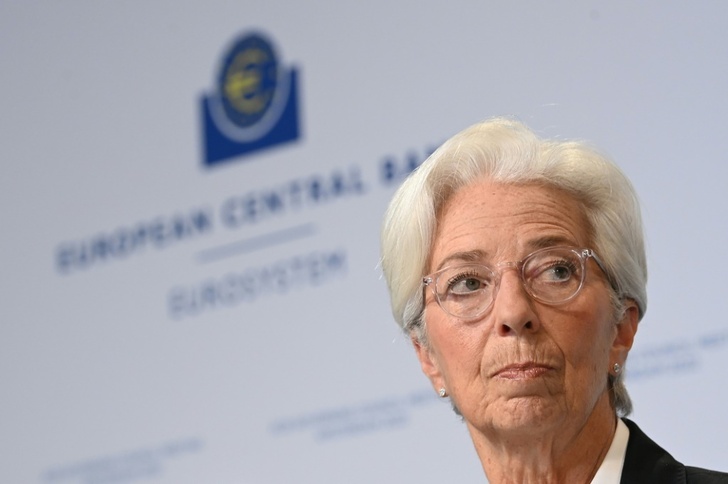The European Central Bank opted for a smaller interest rate rise of half a percentage point on Thursday but warned it expects "significantly" further hikes as red-hot inflation was still "far too high".
The ECB has been lifting borrowing rates at an unprecedented pace in recent months to bring down record-high consumer prices after Russia's war in Ukraine sent energy and food costs surging.
But following two consecutive "jumbo" hikes of 75 basis points, the ECB's governing council downshifted to an increase of 50 basis points at their final meeting of 2022.
The move mirrors the half-point steps taken by the US Federal Reserve on Wednesday, and the Bank of England earlier on Thursday.
The ECB's latest, slightly less aggressive, increase comes after eurozone inflation eased in November for the first time in 17 months, partly thanks to efforts by European governments to ease the cost-of-living squeeze.
At 10 percent however, inflation remains five times higher than the ECB's target and president Christine Lagarde is likely to reiterate at her 1345 GMT press conference that more rate hikes are needed to bring price pressures under control.
"Inflation remains far too high and is projected to stay above the target for too long," the governing council said in a statement ahead of the press conference.
"Interest rates will still have to rise significantly at a steady pace," they said.
ING bank economist Carsten Brzeski said the ECB's comments were "surprisingly hawkish".
The ECB's closely-watched bank deposit rate -- one of the ECB's three key rates -- will now finish the year at 2.0 percent, the highest level since 2008. Just a few months earlier, it was in negative territory.
- 'Short-lived and shallow' -
Like other central banks, the ECB is walking a fine line between raising borrowing costs enough to cool inflation, without dampening demand so much it triggers a deep economic downturn.
The ECB's newest quarterly projections on Thursday showed that the 19-nation eurozone economy was expected to contract in the final quarter of 2022 and the first quarter of 2023.
But the ECB said the winter recession would likely be "relatively short-lived and shallow", echoing analysts' expectations as households and businesses feel the impact of government support packages and gas storage facilities are fuller than usual at this time of year.
The ECB however slashed its outlook for economic growth in 2023, from 0.9 percent previously to 0.5 percent. Stronger growth of 1.9 percent should then be achieved for 2024, it said.
The Frankfurt institution also unveiled its first-ever inflation projection for 2025, set to come in at 2.3 percent.
While the figure is still above the ECB's two-percent target, it's a far cry from the 6.3 percent inflation projected in 2023, followed by 3.4 percent in 2024.
The ECB has faced criticism in the past for underestimating price pressures and Thursday's projections are the latest in a long line of upward revisions. The ECB said the revisions come at a time of "exceptional uncertainty".
- Bloated portfolio -
The ECB also opened up another front in its battle against high inflation, outlining for the first time when and how it plans to start shrinking its five-trillion-euro bond portfolio after years of hoovering up corporate and government debt.
The bank said it would from March gradually stop reinvesting the proceeds from maturing bonds bought under a "quantitative easing" programme launched in 2015.
"The decline will amount to 15 billion euros per month on average until the end of the second quarter of 2023 and its subsequent pace will be determined over time," it said.
Further details of the "quantitative tightening" plan will be announced in February.
In line with its monetary policy tightening campaign, the ECB has already toughened the terms of an ultra-cheap bank loan scheme, aimed at keeping credit flowing during the pandemic, in a bid to incentivise early repayment of so-called TLTRO loans.
The move appears to be paying off, with eurozone lenders handing back around 750 billion euros ($790 billion) in TLTRO cash since October.
mfp/hmn/raz
© Agence France-Presse
Your content is great. However, if any of the content contained herein violates any rights of yours, including those of copyright, please contact us immediately by e-mail at media[@]kissrpr.com.
Source: Story.KISSPR.com

